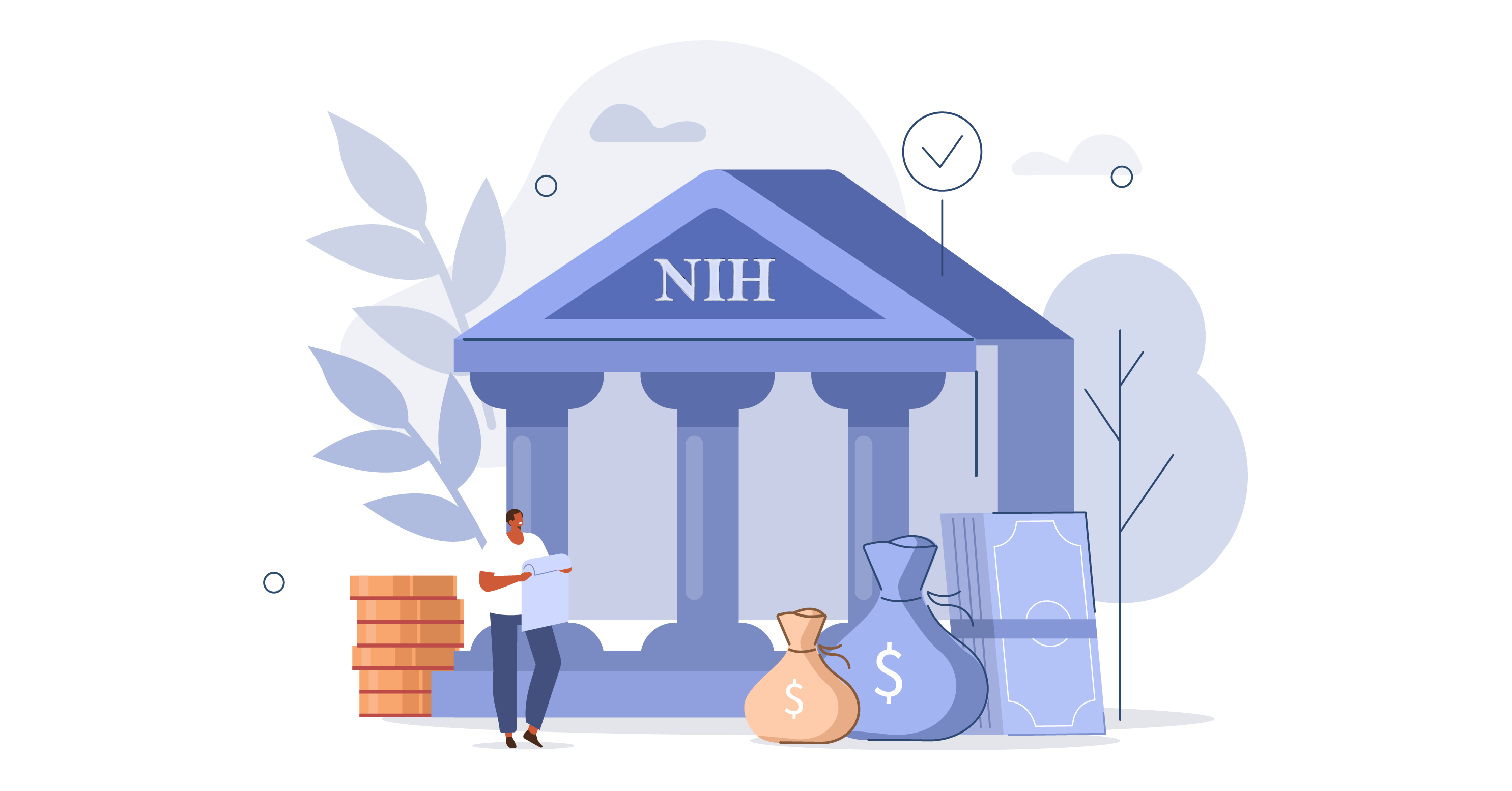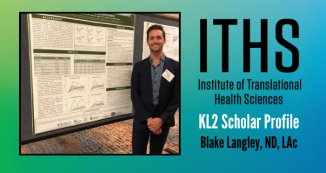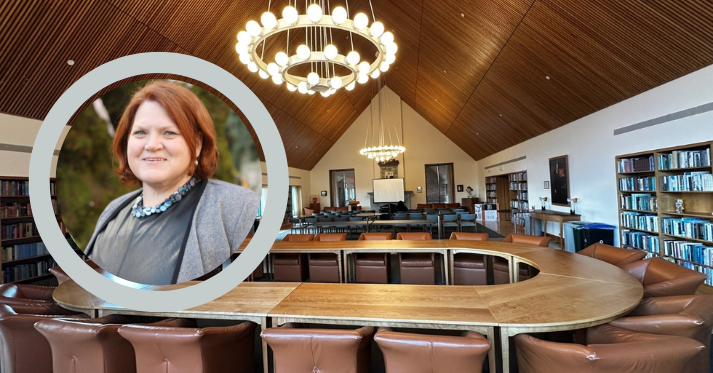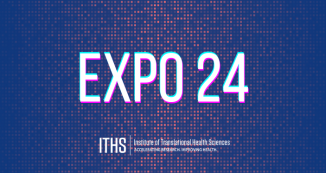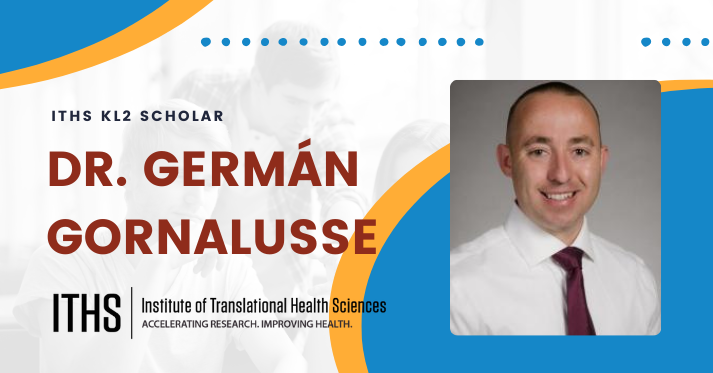
23 Apr ITHS KL2 Profile: Dr. Germán Gornalusse
This year, we began a new profile series to shed light on some of the distinguished scholars currently participating in our KL2 Program. The first installment profiled someone at the very beginning of their KL2 experience, Dr. Blake Langley.
Now, we’re speaking to someone who just completed the program a few weeks ago. Germán Gornalusse PhD, MS, is a Research Assistant Professor at the University of Washington School of Medicine in the Department of Obstetrics and Gynecology, who embarked on his academic journey with a strong focus on Biochemistry from the University of Buenos Aires (UBA) in Argentina. After completing a six-year program for his degree in biochemistry (akin to a Master’s in Science program in the US), he ventured into a Ph.D. program in pharmacology at the same school.
Dr. Gornalusse’s educational background spans across continents, reflecting a diverse and rich academic experience.
We spoke to him about his education journey, what he’s most proud of in his career so far, and what advice he has about the future of HIV/AIDS research:
Can you tell us what brought you to the states to pursue your education?
Due to the 2001 socioeconomic crisis in Argentina, I interrupted my graduate studies and pursued a career outside Argentina. In 2002, I was recruited as a Research Fellow by Dr. Sunil Ahuja in 2002 at the VA hospital in San Antonio, TX. Then in 2004, I was accepted as a graduate student in the Ph.D. program in Microbiology and Immunology at the University of Texas Health Science Center at San Antonio (UTHSCSA), where I finished my studies in 2010.
When did you transfer to the UW?
After obtaining my Ph.D. degree in HIV/AIDS pathogenesis, I transitioned to UW in 2011 and completed a post-doc training in Dr. Russell’s lab at UW Department of Hematology, conducting genetic engineering of h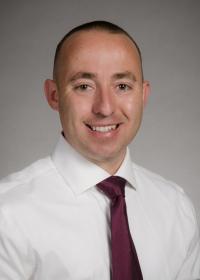 uman stem cells. At the end of 2016, I was offered a position as a research scientist by Dr. Florian Hladik’s lab at the UW Department of Obstetrics and Gynecology. Then in 2017, I was appointed as a faculty member of this department and since then, have been leading several research projects related to mucosal immunology and sexually transmitted infections (STIs).
uman stem cells. At the end of 2016, I was offered a position as a research scientist by Dr. Florian Hladik’s lab at the UW Department of Obstetrics and Gynecology. Then in 2017, I was appointed as a faculty member of this department and since then, have been leading several research projects related to mucosal immunology and sexually transmitted infections (STIs).
Can you tell us about your research focus?
Yes, my area of expertise and research focus lies at the intersection of HIV/AIDS pathogenesis, STIs such as infections by herpes virus, Zika virus, chlamydia and other pathogens. I am also studing of the long-term epigenetic effects of opioid exposure as well as the characterization of basic aspects of human mucosal immunology. All of this is driven by my passion for HIV research. When I started this journey in Argentina doing rounds in clinical diagnostic labs, I witnessed firsthand the challenges faced by people living with HIV. I was particularly motivated into action when I saw the lack of adequate care and the impact the disease was having on vulnerable populations, especially in newborns with HIV and their mothers. This is when I went deeper into the world of immunogenetics, exploring the genetic determinants of diseases, particularly HIV.
Can you talk to us about some of the major milestones throughout your career so far that you’re most proud of?
To me, there have been many significant milestones, and many people who have contributed, but I am very proud of my groundbreaking studies on epigenetic mechanisms of HIV/AIDS pathogenesis (published in the Proceedings of the National Academy of Sciences of the USA). For these studies, I discovered and mechanistically defined the pathways regulating expression of CCR5, one of the two main HIV co-receptors, on T cells.
A second milestone I would highlight is my work on genetic engineering of human stem cells. In my Nature Biotechnology paper, published in 2017, I reported on the design and creation of universal pluripotent stem cells. I engineered these cells to not be rejected by the immune system based on genetic incompatibilities. The creation of universal stem cells that can be given to different individuals as a single drug rather than individualized for each patient holds great promise for regenerative medicine applications. That’s very exciting.
I am also proud that my work has been published in several prestigious journals, notable being cited over 500 times and being featured as a separate article in Nature Biotechnology News and Views section.
How would you say ITHS impacted your journey and assisted you along the way?
It’s such an excellent program, first of all. I wasn’t even sure I’d make it in when I first applied. But the KL2 program at ITHS has been a wonderful experience and so helpful. I’m so grateful to have participated because it exposed me to so much I didn’t know about translational research and translational science. I am confident my experiences here will help me bridge the gap between discovery and translational application as I pursue innovative approaches to fighting HIV/AIDS and related diseases.
What would you like people to know about your work that perhaps they may not be aware of?
I think, especially for translational science, I would offer a word of encouragement to keep searching along the road less traveled, specifically as it pertains to unraveling the complexities of HIV. Blood is very important, but I must emphasizing the crucial role of gut research in finding a cure for HIV. I would underscore the urgency to look beyond conventional approaches.
Thank you so much for your time, German.
Thank you for speaking to me! I am so grateful for ITHS and for the opportunities the KL2 program has afforded me.




